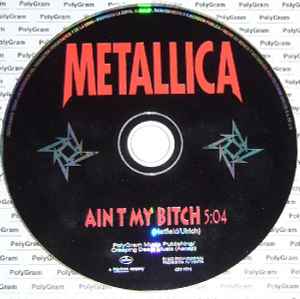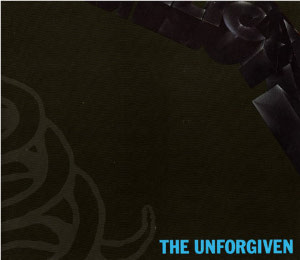We're almost to the cream of the crop in the Metallica song catalog, here's the second tier of tunes!
20. Fade to Black
Metallica's first "ballad" appeared on their second album, and also marked the earliest accusations of the band "selling out." Yes, how dare a metal band write something melodic?? The idea! Anyway, "Fade to Black" was inspired by an incident in Boston where most of the band's gear was stolen after a show, prompting James to pen the song's depression-themed lyrics. The song alternates between shimmery, chill-inducing 12-string acoustic guitars and Metallica's signature blazing electric sound, and features some of Kirk's most ambitious solos up to that point. This still holds up as a classic.
19. Orion
Cliff Burton's most significant songwriting contribution came in the form of this sprawling instrumental, one that featured the prodigious 24-year-old's four-string chops more than any song since "Anesthesia." Cliff made use of his extensive music theory knowledge to lend the song absolutely gorgeous guitar and bass harmonies, and stole the show near the end of the classical-tinged waltz section with a beautiful harmony-laden solo. Hearing his work on this song makes his untimely death that much more tragic; imagine what else he could've contributed to the band if he'd had more time. "Orion" is one of the great rock instrumentals and a unique accomplishment in the Metallica catalog.
18. Disposable Heroes
Probably the most brutally heavy song on Master of Puppets is this antiwar anthem whose lyrics are seemingly inspired by All Quiet on the Western Front, about how those in power manipulate would-be soldiers into enlisting and then use them as expendable pawns. James pulls no punches in his vocal delivery, barking the song's signature phrase "Back to the front" like a drill sergeant. Between the syncopated, machine-gun verse riff and the relentless, shredding pre-chorus riff, this is one of Metallica's most exhausting songs to play and its chaotic atmosphere poignantly matches its subject matter.
17. Ain't My Bitch
The opening track from Load is a bluesy midtempo groover with a rather nihilistic theme, essentially "I don't have time to deal with your bullshit, so keep it to yourself." In terms of the guitar riffs this is a logical progression from the Black Album (though a slide guitar solo in the bridge adds some southern rock texture), and James' vocals are some of the strongest and most layered on the album. "Ain't My Bitch" sets the tone for one of Metallica's most controversial records, in a way heading off the complainers at the pass - "I've already heard this song before/You arrived/But now it's time to kiss your ass goodbye."
16. My Apocalypse
The unfathomably fast closer to Death Magnetic is also the album's only song under six minutes, but there's so much packed into this one it feels like an all-out assault on the senses. In the tradition of "Damage Inc" and "Dyer's Eve," this tune is pure balls-to-the-wall speed metal and a high-energy joy to listen to. Between the impossibly rapid guitar riffs and Lars' relentless 200bpm pounding, "My Apocalypse" proved to all the doubters that Metallica could still deliver intense, intricate, no-bullshit thrash. This is one of the best songs on the album and one of their best-ever closing tracks.
15. The End of the Line
My favorite Death Magnetic track is this doom-laden rumination on self-destruction. From the legato main riff to the layered chorus parts, to a Tool-esque syncopated bridge section, to the ominous quiet bridge section, this tune is probably the album's most creative. It also features Hetfield at his most hostile, decrying the various forms of chemical dependency that have taken so many celebrities so young - "Hooked into this deceiver/Need more and more." Supposedly James was partly inspired here by the death of Layne Staley, but regardless, "The End of the Line" is a piercing commentary on substance abuse.
14. Dyer's Eve
Another absolutely blistering album closer is this final song from ...And Justice For All, a scathing rebuke against domineering parents, featuring more of James' most rage-filled vocal delivery and jackhammer guitar riffs. The song comes in like a whirlwind, exploding abruptly from the end of "To Live is to Die," and ending just as suddenly with a tape edit. For years I was convinced the song was cut down for time and there was meant to be another guitar solo or something, but based on numerous demo versions, the song does indeed end there and the edit was a creative choice - as startlingly as "Dyer's Eve" begins, so it concludes. This is one of Metallica's most punishing tunes and a fitting conclusion to their bleakest record.
13. Inamorata
For me this 11-minute opus is the finest track off Metallica's latest, 72 Seasons, an emotive, sorrowful piece centered around our attraction to darkness and pain. James pours his heart out in the lyrics, which for me are among the most relatable Metallica has ever penned. "Misery, she feeds me, but she's not what I'm living for" sums up the theme of not only this song but in a way the entire album - the emotional traumas of our first 18 years can define who we are if we let them, but we must strive to be something more. "Inamorata" cuts a methodical pace, carried by the vocal melody, before breaking down into a delicate bass section and building to a massive wall of guitar harmonies that harkens back "Orion," "To Live is to Die," and "My Friend of Misery," and in its climactic few minutes surges into a double-time denouement. This is one of Metallica's most inspired and affecting pieces of songwriting in years and an epic conclusion to 72 Seasons.
12. To Live is to Die
Speaking of epics, this near-ten-minute instrumental from ...And Justice for All stands head and shoulders above its counterparts from where I sit. Kicking off with a delicate, classical-sounding guitar intro, the song shifts radically into a slow-moving, thundering metal guitar dirge, ratcheting up the tension as melodies and solos are added. But like its predecessor "Orion," "TLITD" really shines in its middle third; a wall of guitar harmonies sing out a mournful, romantic waltz before a sudden stop, and a lone clean guitar arpeggio takes over. Guitar volume swells gently float in like cellos, followed by a lyrical Hetfield solo, before the harmonies explosively return, and the song transitions back to its first-movement riff. "TLITD" is almost symphonic in scope, intense, massively heavy, and above all beautiful.
11. The Unforgiven
One of numerous iconic Black Album songs, "The Unforgiven" is one of Metallica's most creative. The main guitar part is hugely influenced by legendary Italian composer Ennio Morricone (including an opening horn lifted from one of his Spaghetti Western scores and reversed), a clean nylon string sound with clacking percussion in the background. Dynamically the song inverts the Metallica "ballad" formula with heavy, distorted verses and a clean, melodic chorus. The despondent lyrical theme is that of a man forever stuck in an emotional prison, having been raised and conditioned all his life to be closed off to the world, only to realize too late that he alone had the ability to free himself - "The old man then prepares to die regretfully/That old man here is me." One of the most colorful songs in Metallica's playlist, "The Unforgiven" was such a hit that it spawned two sequels, but the original is still the best.
We're almost to the top of the mountain! Bring it back here tomorrow for the Metallica Top 10!











No comments:
Post a Comment